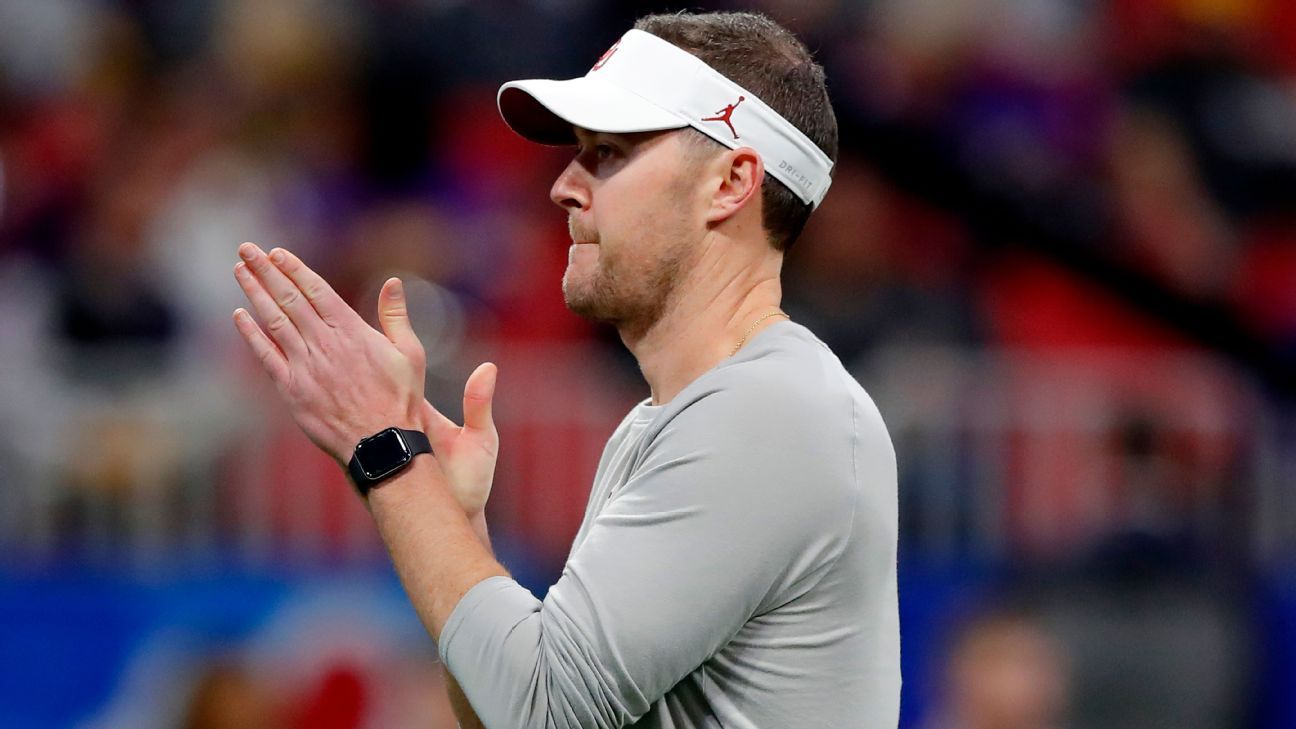While commissioners, athletic directors and coaches brace for the worst amid the growing coronavirus crisis, Oklahoma‘s Lincoln Riley said he remains confident there will be college football this season — even if it looks a bit different.
After the Big Ten and Pac-12 announced a move to conference-only play and numerous college football power brokers have expressed concerns about the season being played, Riley said there’s ample reason to find a solution, as long as it meets safety standards.
“I just can’t imagine a scenario [where we don’t play],” Riley said. “Whether it’s something we do in the fall, whether it’s a shortened season, whether it’s spring, there’s nothing we should take off the table. Regardless of what we have to do, I don’t think there’s anything we can’t work around and we can’t adjust and can’t make work in order to play college football. We’ve all got to do our part on that.”
Riley has been among the few big names to advocate for the potential of a spring season. He said the key is simply time — giving medical professionals and schools the longest runway to find a workable plan.
Oklahoma’s football program had 14 players test positive for Covid-19 throughout its initial run of testing, but the Sooners announced no new positive results among 89 tests performed on July 8. Riley said he’d just taken another test Tuesday as part of the program’s ongoing protocols.
Riley said the safety of staff and players remains the top priority, but he noted that the financial health of the schools, athletic departments and surrounding communities is so dependent on college football that it’s incumbent on programs to make the necessary concessions to make a season work, if at all possible.
“The health and safety is the most important thing, and that’s the determining factor,” Riley said. “If we can’t do it, we can’t do it. But if we can, college football is so important to these communities, these universities, these athletes — not just football athletes, but college football affects every athlete on every campus. It’s a big, big deal. It’s not more important than health, but if we can get it to a safe place, we’ve got to find a way to get it done, whenever and however.”
